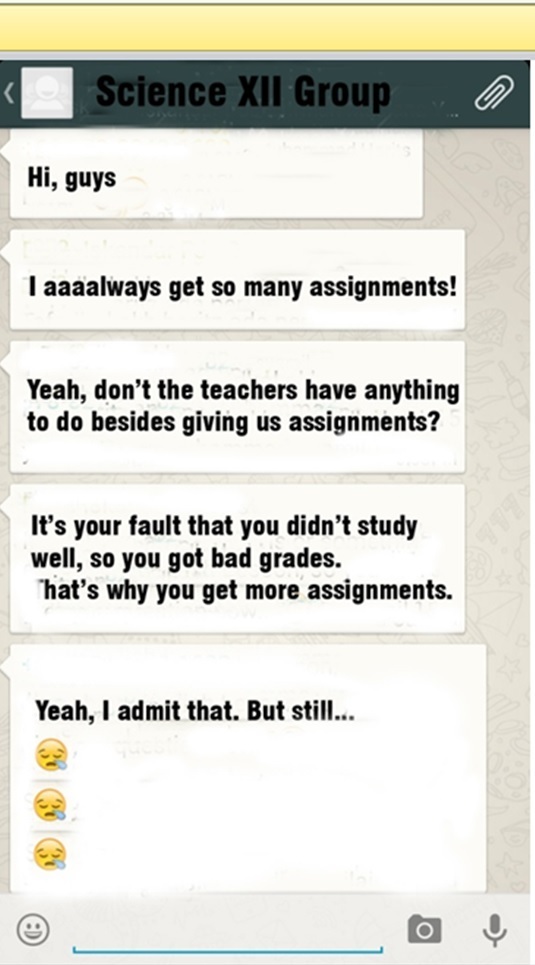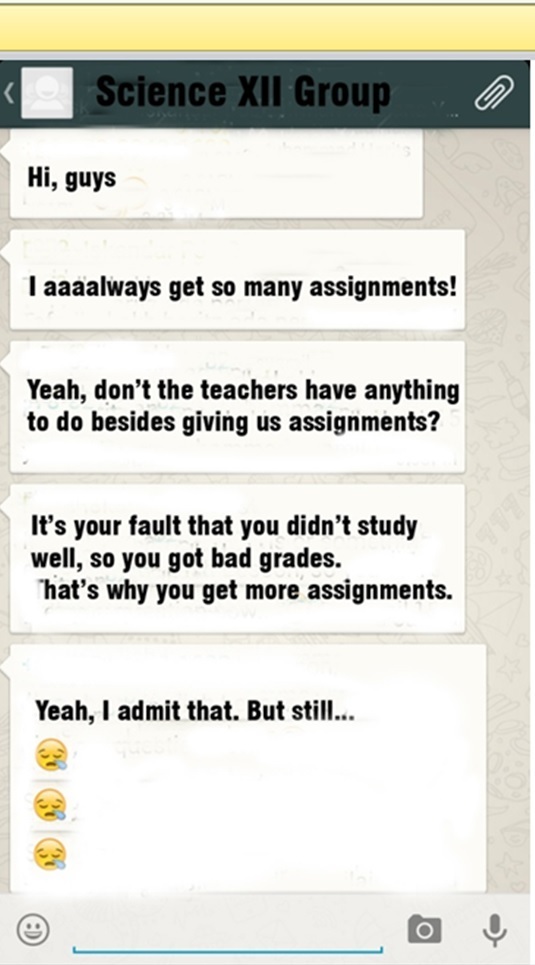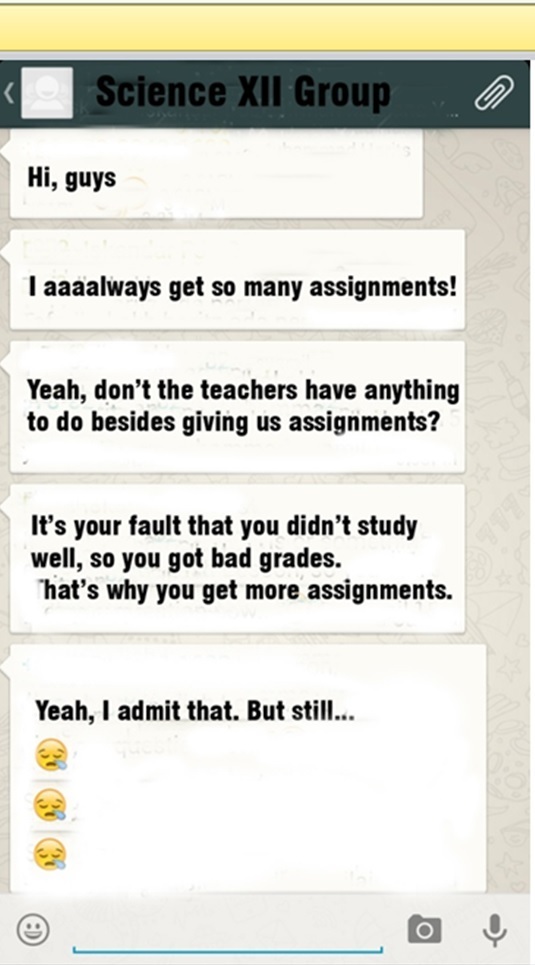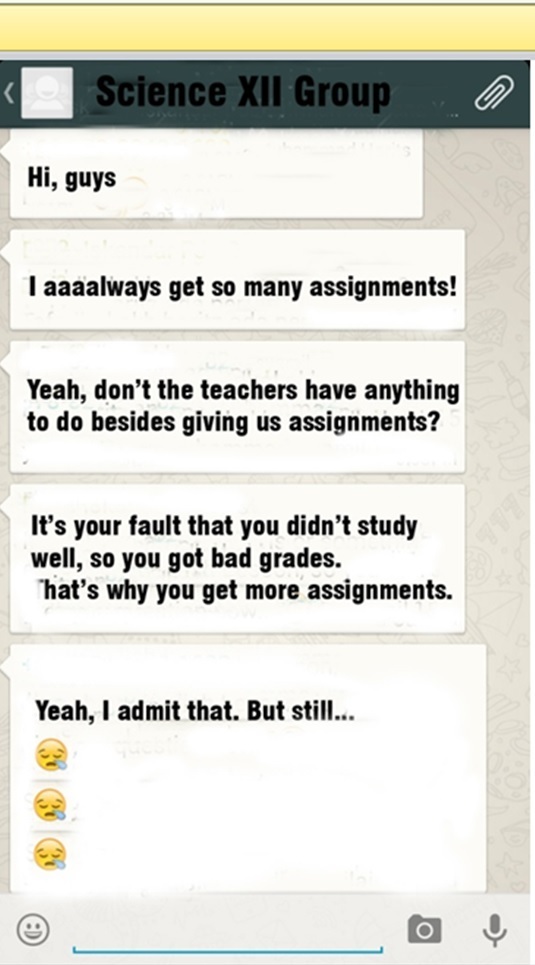Contoh Soal Using Expressions of Blames, Accusation and Complaints in A Context
Contoh Soal Using Expressions of Blames, Accusation and Complaints in A Context - In this lesson, you will learn about and how to use expressions of blame, accusation, and complaint in a context appropriately.







Blaming, Accusing, Complaining
People do blame. People do accuse. People do complain. Well, to avoid judgment, some people do. But one has to remember that those things are sometimes dangerous—it leads to quarrel, dispute, argument, you name it.
Nowadays, with the rapid development of technology, it is even easier to put the blame, accusation, and even to complain about trivial things in a matter of seconds; just post it online, and then it goes viral. Some people think that they do not have any boundary anymore, that they can say everything as freely as possible. In fact, you are responsible with your own words, so be careful with what you say in public.
Try to watch this funny and witty stand up comedy video from Craig Ferguson. Boom!
THE EXPRESSIONS OF BLAME
In the transactional and interpersonal conversation, we are often faced with many kinds of situation. For instance, when we work in a group and then something goes wrong. Probably, someone who is in charge of the group will ask for our responsibility. S/he will also take the blame for whatever goes wrong with the group because s/he is the leader. Being a leader means being responsible for whatever goes well or unwell within the group. The expressions of blame that we learn in this lesson, are the way we say based on what we think about how a person should be responsible for something. However, expressions of blame are also applicable in a situation where someone did something incorrectly and s/he must be responsible for what happened. It is important to remember that there are risks in blaming others. There is always a risk of putting on the mistakes on someone who didn't do anything wrong. Thus, be careful in using this expressions. Do not judge people so easily and put the blame on them. It will make them becoming a scapegoat of an unpleasant situation and this is wrong. Being a scapegoat of a situation means making a person or a group made responsible for others' mistakes. Below are some expressions of blame and some expressions used to response and decline the expressions of blame:

Study the dialogue containing the expressions of blame below:
Vira : We cannot turn in our assignment on time.
Lira : It’s your fault. You could not finish your part.
VIra : I’m sorry for my fault. I was sick for several days.
Lira : It’s your fault. You could not finish your part.
VIra : I’m sorry for my fault. I was sick for several days.
THE EXPRESSIONS OF ACCUSATION
The expressions of accusation are similar to those of blame. In terms of their uses, these expressions put someone or something in the position of the one that makes something goes wrong—in spite of true or not. To accuse means to say that someone has done something which are morally wrong or unkind. Below are the expressions of accusation and the responses:

Study the dialogue containing the expressions of accusation below:
Hana : I lost my notes!
Cici : It must have been Galuh! He always teases you.
Galuh : What? No, I didn’t do it. Perhaps you forget where you did put it.
Hana : I lost my notes!
Cici : It must have been Galuh! He always teases you.
Galuh : What? No, I didn’t do it. Perhaps you forget where you did put it.
THE EXPRESSIONS OF COMPLAINT
Complaints are expressions of "displeasure or annoyance" in response to an unfavorable action. Perhaps we often encounter these expressions in many different occasions; when a person is not satisfied with someone else’s work, with the service given, or such. These expressions are important to learn in order not to get someone else offended, because the main purpose of complaint is to get someone or something to do and to be better, not merely to offense the other party. Below are some expressions of complaint, also the positive and the negative responses:

Study the dialogue containing the expressions of complaint below:
Levi : Good morning.
Store keeper : Good morning. May I help you?
Levi : I’m here because I have a complaint to say. Yesterday I bought a phone case here, but it’s not in a good condition.
Store keeper : I’m sorry about that. We need to take a look at it first.
Levi : Good morning.
Store keeper : Good morning. May I help you?
Levi : I’m here because I have a complaint to say. Yesterday I bought a phone case here, but it’s not in a good condition.
Store keeper : I’m sorry about that. We need to take a look at it first.
S1
The function of an expression of blame is ....
S2
The function of an expression of accusation is ....
S3
The function of an expression of complaint is ....
S4
Choose one that is an expression of blame ....
S5
Find one correct option that is an expression of accusation ....
S6
Pick one that is an example of the expression of complaint ....
S7
Study this chat dialogue to answer questions 7-10

“I aaaalways get so many assignments!” is the expression of .…
S8
Study this chat dialogue to answer questions 7-10

“It’s your fault …” is the expression of….
S9
Study this chat dialogue to answer questions 7-10

What is being discussed in the group? It is ....
S10
Study this chat dialogue to answer questions 7-10

In the end, what does the person who made the complaint do? Choose the right statement ....
